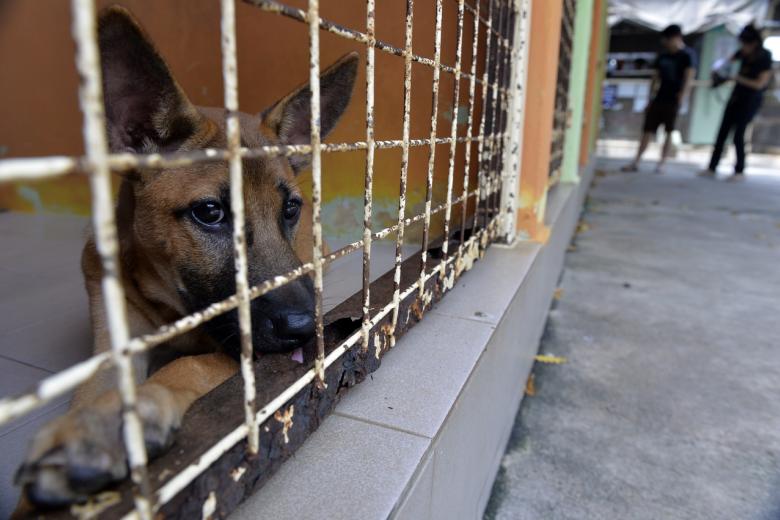SINGAPORE - The authorities investigated close to 1,200 alleged animal cruelty and abuse cases each year between 2017 and 2020, said National Development Minister Desmond Lee on Monday (Sept 13).
In a written parliamentary reply to Mr Louis Ng (Nee Soon GRC), Mr Lee said since 2017, 26 offenders have been jailed, another 40 were charged in court and fined, 113 were given compound fines and 87 received warning letters.
About 30 per cent of the 260-odd cases were related to animal cruelty, while the rest involved pet owners who failed in their duty of care, said Mr Joshua Teoh, director of animal welfare at the National Parks Board's (NParks') Animal and Veterinary Service.
Examples of failure in duty of care include pet owners failing to mesh windows to prevent cats from falling from height and cases of small mammals being kept outside owners' residences.
First-time offenders who are guilty of failure in the duty of care to their pets can be fined up to $10,000, jailed up to 12 months, or both.
Meanwhile, first-time offenders who commit animal cruelty-related offences can be fined up to $15,000, jailed up to 18 months, or both.
Repeat offenders face a maximum fine of $30,000, a jail term of up to three years, or both.
As for cases where no enforcement action was taken, NParks said they involved public disputes, disturbances caused by pets or community animals, or deaths of community animals due to non-cruelty-related reasons like accidental falls from height.
Such cases, which form about 95 per cent of all investigated cases, also include fights among community animals and road traffic accidents.
Mr Teoh said NParks investigates all alleged cases of animal abuse or cruelty.
During investigations, officers gather evidence from all relevant sources, which often include closed-circuit television (CCTV) footage.
This can be a very tedious and time-consuming process, said Mr Teoh, as officers may have to review hours of footage on top of ground inquiries and interviews.
Simple investigations with readily available evidence thus take about two months to close, while more complex cases may take more than eight months, he added.
He said an additional challenge that investigation officers face is the nature of the victims, which are voiceless and defenceless. "Animals cannot speak for themselves, they cannot talk, and therefore we have to rely on evidence that is available at the scene."
Given the challenges, Mr Teoh urged members of the public not to speculate on potential abuse cases on social media, and wait for investigations to be completed to get a fuller picture.
It will be helpful for those making complaints or providing feedback to include photographs and videos as evidence to aid in the investigation, he added.
Those who wish to report suspected cases of abuse or cruelty may do so at this website.
Pet owners can visit this website to learn about the minimum standards expected of animal housing, management and care.


